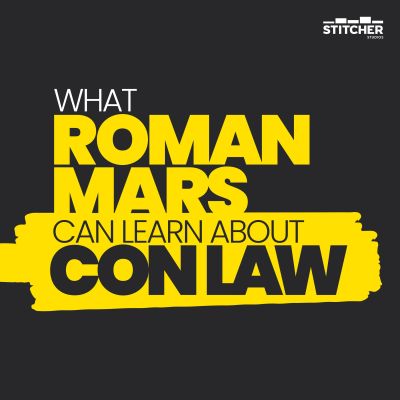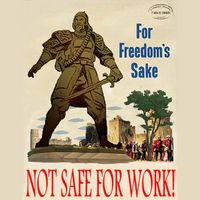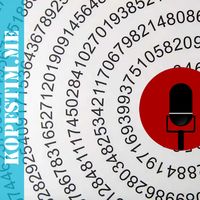Professor Elizabeth Joh teaches Intro to Constitutional Law and most of the time this is a pretty straight forward job. But when Trump came into office, everything changed. During the four years of the Trump presidency, Professor Joh would check Twitter five minutes before each class to find out what the 45th President had said and how it jibes with 200 years of the judicial branch interpreting and ruling on the Constitution. Acclaimed podcaster Roman Mars (99% Invisible) was so anxious about all the norms and laws being tested in the Trump era that he asked his neighbor, Elizabeth, to explain what was going on in the world from a Constitutional law perspective. Even after Trump left office, there is still so much for Roman to learn. What Roman Mars Can Learn About Con Law is a weekly, fun, casual Con Law 101 class that uses the tumultuous activities of the executive, legislative, and judicial branches to teach us all about the US Constitution. All music for the show comes from Doomtree, an independent hip-hop collective and record label based in Minneapolis, Minnesota.
https://www.stitcher.com
Gesamtlänge aller Episoden: 1 day 11 hours 46 minutes
recommended podcasts
48- The Final Days
How Trump is failing to overturn the election and how he might use his pardon power in his final days. This episode was recorded on December 21, 2020.
47- Lame Duck
In late November, most states have certified the Presidential election for Joe Biden and his running mate, Kamala Harris. But Donald Trump continues to deny the results of the election and insist (without a shred evidence) that he lost because of voter fraud. What does the constitution have to say about the transfer of power? What if Donald Trump fails to concede? What does the constitution say about the period of time after an incumbent loses but remains in power?
46- Counting Votes
During the 2000 Presidential Election, it wasn’t immediately certain who had won the electoral college votes in Florida, throwing the entire process into chaos. Eventually, the SCOTUS had to step in to rule on the outcome. With the 2020 election only a few days out, we take a look back at how the Supreme Court played a role in adjudicating the election in Bush v. Gore, and then we look forward to what might happen this time around.
45- SCOTUS without RBG
On September 18th, Ruth Bader Ginsburg died at the age of 87. She was a trailblazing jurist who fought for the equality of women before the law. But her legacy is in peril, as Donald Trump and Senate Republicans prepare to nominate a conservative successor. What can Democrats do to alter the course of the SCOTUS? And what does the constitution tell us about so-called ‘judicial supremacy’?
44- The Hatch Act and The Election
With only two months before the election, the Republican Party got a lot of attention - and scorn - for using the White House as a backdrop during their nominating convention. The convention appeared to be in contradiction of The Hatch Act, which forbids federal employees from political campaigning while they’re on duty. Even if the convention broke the law, will anyone be held accountable? Plus, we tackle the President’s recent comments casting doubt on mail-in balloting.
43- The Trump SCOTUS Term
We review some of the big cases that were decided during the SCOTUS term and assess the constitutionality of the federal policing of the Portland protests
42- Police, Race, and Federalism
As people around the world continue to protest police brutality, Republicans and Democrats in Congress have proposed bills that would reform policing across the U.S. But in the American system, states are given a lot of latitude over law enforcement, down to the use of tactics like chokeholds and tear gas. Given the constitution, what can the federal government actually do to make things better? Also, why was the ever-obscure Third Amendment trending last month?
41- The Socially Distanced SCOTUS
The Supreme Court may not be able to meet in person, but they are still doing business over conference call. This month, they've considered three cases about Donald Trump's finances, and whether they should be released to Congressional committees and prosecutors in New York. What does history tell us about these cases which could have major consequences for executive power?
40- Jacobson and COVID
In mid-April, 2020, states are beginning to explore ways to re-open their economies amid the global coronavirus pandemic. But with states devising their own paths forward, many are wondering what powers the government has, even during a national emergency. Are the states violating our civil liberties by enforcing these lockdowns? To answer this question, many legal scholars are looking to a 115-year-old Supreme Court case for answers, Jacobson v. Massachusetts.
39- Quarantine Powers
During a health crisis, what is the government allowed to do? As the novel coronavirus spreads across America, there have been closures and lockdowns across the country. In this episode, we look to history to understand who has the power to quarantine, and how the office of the president can be used to slow down a pandemic.








































